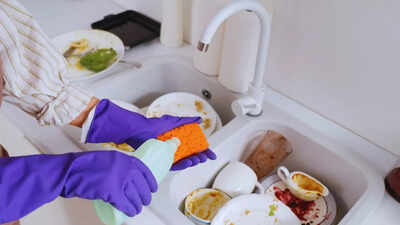Thailand’s Queen Mother dies of sepsis: 8 things you should know about blood infection

The Queen Mother Sirikit of Thailand, passed away at the age of 93. She was revered for her rural development initiatives and environment protection efforts. According to the official statement, Queen Mother Sirikit had been hospitalized since 2019, battling several ailments including a blood infection earlier this month.The Queen Mother’s passing has highlighted the severity of sepsis. As per a data published in The World Health Organisation, 11 million sepsis-related deaths were recorded in the year 2020, which represented 20% of all global deaths.
8 things you should know about blood infection

1. What is sepsis
As per World Health Organization, Sepsis or severe blood infection, is a life-threatening condition that happens when the body’s immune system has an extreme response to an infection, causing organ dysfunction. The body’s reaction causes damage to its own tissues and organs and it can lead to shock, multiple organ failure and sometimes death, especially if not recognized early and treated promptly.
2. What causes sepsis
Almost any infection can lead to sepsis if left untreated or if the immune system becomes overwhelmed. According to the CDC, Bacterial infections cause most cases of sepsis. Sepsis can also be a result of other infections, including viral infections, such as influenza. Fungal infections can also cause sepsis.
3. Who is most at risk
While anyone can develop sepsis, certain groups are significantly more vulnerable due to weakened immune function, existing illnesses, or exposure to hospital environments.Individuals most at risk:
- Older adults: According to US Centers for Disease Control and Prevention adults aged 65 and older account for nearly 60% of all sepsis cases.
- Infants and very young children: The WHO reports that children under five, especially newborns, are at high risk due to their immature immune systems.
- Individuals with weakened immune systems: As per Mayo Clinic, people undergoing chemotherapy, transplant recipients on immunosuppressive drugs, and individuals living with HIV/AIDS pose greater risk.
- Pregnant and Postpartum Women: Pregnancy-related sepsis remains a global concern. The WHO notes that 11% of maternal deaths worldwide are linked to sepsis.
Others at risk may include people with chronic health conditions, hospitalized or recently individuals and people with open wounds, burns, or severe injuries.
4. Symptoms of sepsis
Symptoms can develop rapidly and may include:
- Fever, chills, or feeling very cold
- Confusion or disorientation
- Shortness of breath
- Extreme pain or discomfort
- Clammy or sweaty skin
In severe cases, symptoms may progress to septic shock, characterized by a significant drop in blood pressure, leading to potential organ failure.

5. Early detection of sepsis
Early detection of sepsis is critical for survival. The condition can progress rapidly in a matter of hours.According to the World Health Organization (WHO), sepsis-related deaths often occur because the condition is not recognized or treated early enough. Every hour of delay in administering appropriate antibiotics increases the risk of death by 7–10%.
6. The “golden hour” concept related to sepsis
Medical experts often refer to the first hour after sepsis recognition as the “golden hour.” Clinical evidence shows that every hour of delay in antibiotic administration increases mortality by 7–10% in patients with septic shock.
7. Challenges of sepsis detection
Case studies and research highlight that sepsis progresses rapidly and often presents with non-specific symptoms, making early diagnosis difficult. Another challenge is the lack of a single diagnostic test. Unlike conditions such as diabetes or COVID-19, As per NIH, no single laboratory test can confirm sepsis. Even the gold standard for identifying the underlying infection, called blood cultures, can take 24 to 72 hours.
8. Prevention strategies
The Centers for Disease Control and Prevention (CDC) has outlined several key strategies to prevent infections that can lead to sepsis.
- Prevent infections through vaccination or wound care and hygiene
- If you suspect sepsis, seek medical attention immediately
- High-risk individuals should get regular medical checkups





